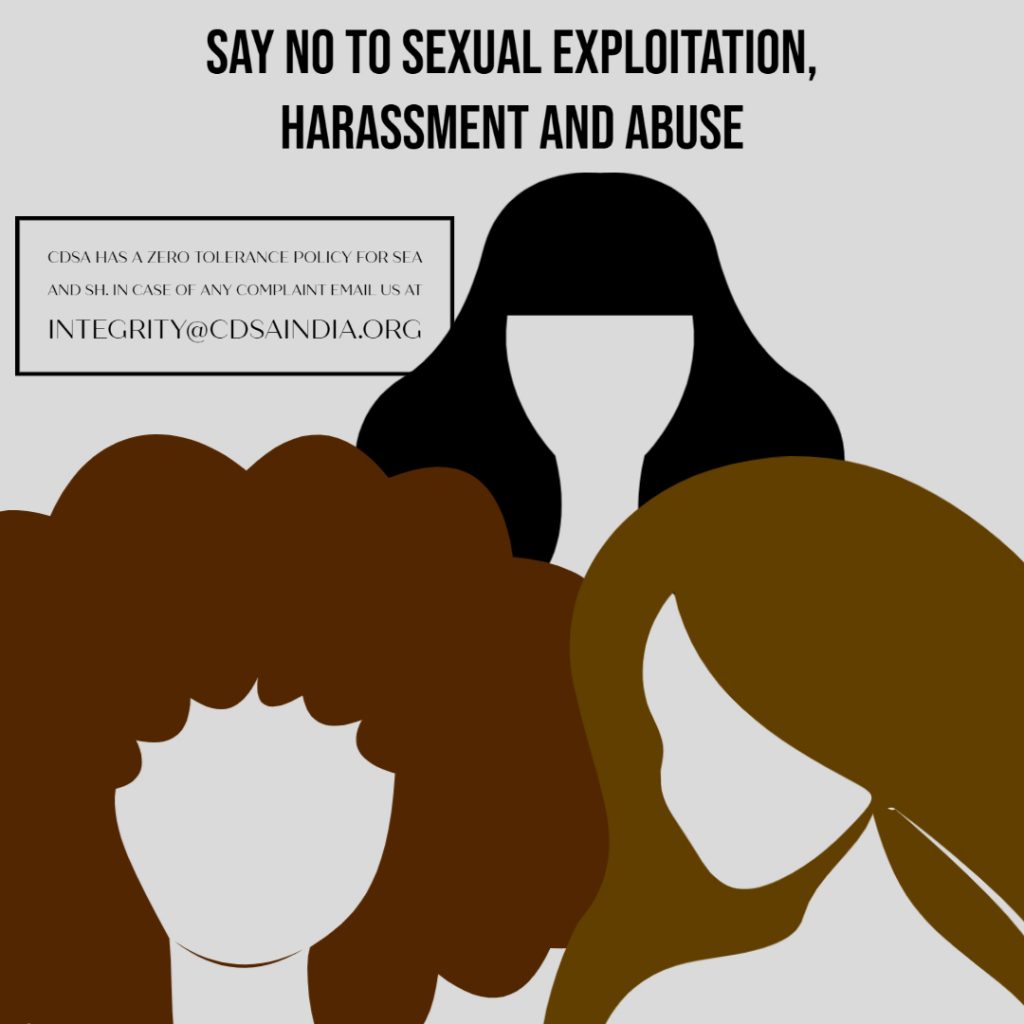Sexual Exploitation and Abuse (SEA) and Sexual Harassment (SH) are unacceptable breaches of fundamental human rights and a deep betrayal of CDSA’s core values. The sexual exploitation and abuse of those who depend on CDSA for assistance runs counter to all our personal and organisational values. It is unconscionable, it is intolerable, and it is often criminal. Equally intolerable is the sexual harassment of our fellow aid workers. Working closely with partners and communities, CDSA has significantly stepped up its fight against SEA and SH. This work is informed by, and taking place in tandem with, the work of related actors including the broader UN system, donors, and civil society organizations.
You can find the complete strategy document here.

CDSA will use power responsibly by taking account of, giving account to, and being held to account by the people it seeks to assist. This accountability will drive all CDSA actions on SEA and SH and will operate on three levels:
- Individual Accountability: All CDSA personnel are accountable for regulating their conduct at all times in a manner befitting their status, including in their private lives when not at work. They are expected to support an organisational culture of care, respect, integrity, trust and accountability that deters violations.
- Leadership Accountability: The Executive Director together with Senior Management are accountable for setting the tone from the top and guiding the organisation in preventing and responding to SEA and SH in all contexts. They will prioritise the resourcing of programmes, teams and structures to enable effective prevention and response measures to be rolled out. They will lead in creating an organisational culture of zero tolerance based on care, respect, integrity, trust and accountability.
- Organisational Accountability: CDSA as an organisation is accountable to act on complaints – that is, to provide support to survivors; to conduct impartial and confidential investigations; to apply sanctions within the scope of CDSA’s authority; to cooperate with national legal systems as appropriate so as to help secure fair recourse. While the accountability for violations by personnel of implementing partners rests with those entities, CDSA has an organisational accountability to work closely with implementing partners to manage shared risks and address common challenges.
